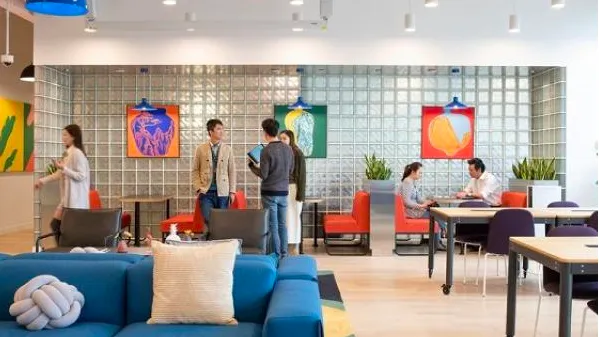
Flex office spaces gaining momentum in Central Tokyo
WeWork, Spaces, Business-Airport and Human First Time will launch more spaces in Q3 2021.
According to JLL, over the past year and a half, flexible office space (flex space) in central Tokyo has continued to increase despite COVID-19, as demand for workspaces with flexible lease terms is tenacious.
“Although there was an initial decline, leasing activity for flex space picking up throughout the pandemic as many companies have only 10-30% of employees regularly commuting to the office, and most are working remotely.”
Here’s more from JLL:
For example, after the first state of emergency was implemented by the government last spring, the fast-growing mobile payment company PayPay signed up for 1,000 seats as its headquarters at the largest global co-working operator WeWork at the end of the year. The company cited a need for a dynamic workspace that would enable its employees to focus on collaboration and work collectively as a team.
Around the same time, a subsidiary of a major domestic media company signed up with Spaces, the co-working series operated by Regus, to have its regional teams to work collaboratively from a central location, building up its internal network.
Other companies such as Nippon Telegraph and Telephone (NTT) signed with Regus in March this year for its 300,000 employees after the government announced the second state of emergency. The company initiatives were aimed at keeping employees productive by providing workspace closer to their homes. Their deal with Regus is for three years and is expected to continue post-COVID-19.
Such types of demand are on the rise among both fast-growing startups and large corporates as flex operators are providing users with “all-access” plans that allow them to use all locations within a flex operator’s network. Moreover, flex operators are offering online business-matching services, such as “Connect by WeWork”, and other value-added services.
These new features, combined with the rising popularity of a hybrid “core + flex” strategy for workspace, are likely to expand flex space further.
As of 1Q21, approximately 2% of Grade A office stock was occupied by flex operators. In the third quarter of this year, WeWork, Spaces, Business-Airport and Human First Time (H1T) are scheduled to launch more locations in central Tokyo, driving the expansion of the industry through 2021.
Going forward, new operators as well as existing operators are expected to continue to scale up in central Tokyo over the next several years and the trend is also likely to pick up in regional cities.
Figure 1: Comparison of Grade A office (core) and Flex space (as of 1Q21)
Source: JLL



















 Advertise
Advertise







